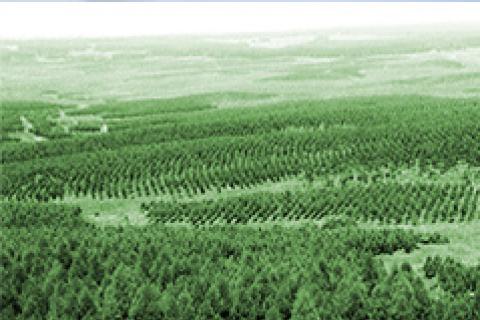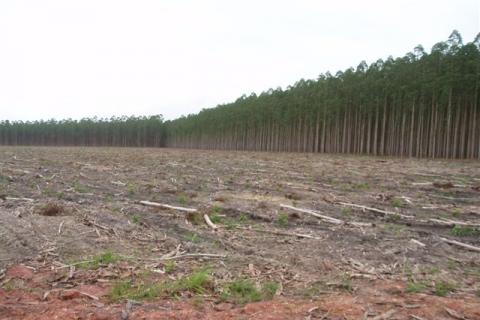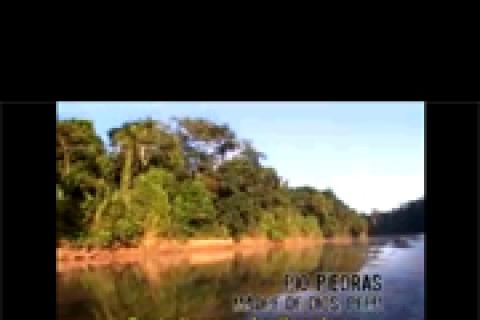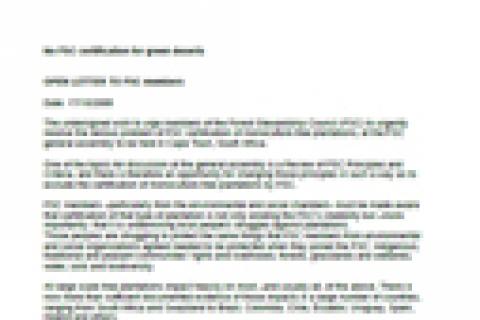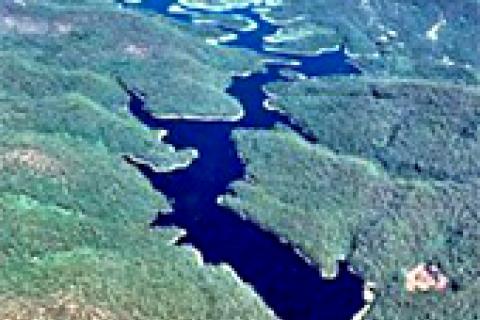We the undersigned wish to register our concern over the certification of tree plantations by the FSC, which has granted a green label to monoculture plantations that have proven to be socially and environmentally destructive.
We are aware that the FSC is carrying out a review of its plantation certification policy, and it is our hope that the result of this process will be an end to the certification of these types of plantations by the FSC in the future.
Other information
The book authored by Philip Gain -Stolen Forests, published in 2006- denounces the horrendous consequences of the introduction of plantations —teak, rubber, eucalyptus and acacia monocultures— on Bangladesh’s native forests.
The Sixth Assembly of the Pataxo Front for Resistance and Struggle met at Monte Pascoal, Bahia, on 19 August to assess the problems they are facing as a consequence of insufficient land, impairing their sustainability and culture.
The history of the Pataxo and their uprooting goes back to 1861, when together with other indigenous communities they were evicted from their lands by the government of the Province of Bahia, to gather them in a single locality.
In April 2003, in WRM Bulletin Nº 69, we wrote an article on the Democratic Republic of Congo focused on the exploitation of columbium-tantalite (coltan, for short), widely used in cellular phones, laptop computers and video games, and how the mining of this ore has devastated forests like the Ituri forest, changing forever sites which used to sustain the Mbuti livelihoods and were the habitat of several animals like gorillas, okapis --a relative of the giraffe--, elephants and monkeys. It was a sad picture that coltan left in the forests of DRC, a scenario for war and depredation.
Tourism has come to stay in Costa Rica and, with it, ransacking and depredation of the country’s prodigious ecosystems (see WRM Bulletin 84). This is denounced by Juan Figuerola, of the Costa Rican Federation for Environmental Conservation (FECON), in a press release under the heading of “The environmental devil: lord and master of Costa Rica” (“El diablo ambiental: amo y señor de Costa Rica”, available in Spanish at http://www.wrm.org.uy/paises/CostaRica/Diablo_Ambiental.html).
We have recently learnt that Veracel has launched a process to obtain FSC certification for its plantations. It has hired the consulting company SGS for this purpose.
By Raúl Zibechi.
Source: Programa de las Américas - www.ircamericas.org
Only available in Spanish -
Por Pablo Cingolani - 21/Julio/2007
No a las mega represas de Lula en el río Madera
In an “Open Letter to the population and Brazilian authorities”, the Commission of Tupinikim and Guarani Chiefs and Leaders state:
“Today (24/07/2007) we are starting to carry out several peaceful actions with the aim of retaking possession of the 11,009 hectares of lands that belong to us and that have already been thoroughly identified by the FUNAI [the Federal Agency for Indigenous Issues] as lands traditionally occupied by us, Tupinikim and Guarani.
Chile is where the “forestry model” introduced into the countries of the South – that is to say large-scale monoculture tree plantations, mainly aimed at producing pulp for export – has been “sold” best.
Between 1991 and 2001, Shell Renewables -a division of Shell Oil International- implemented a forestry operation based on the planting and harvesting of fast-growing cloned eucalyptus trees (see WRM Bulletin 46), with the aim of establishing a high-yield source of biomass for future energy generation.
